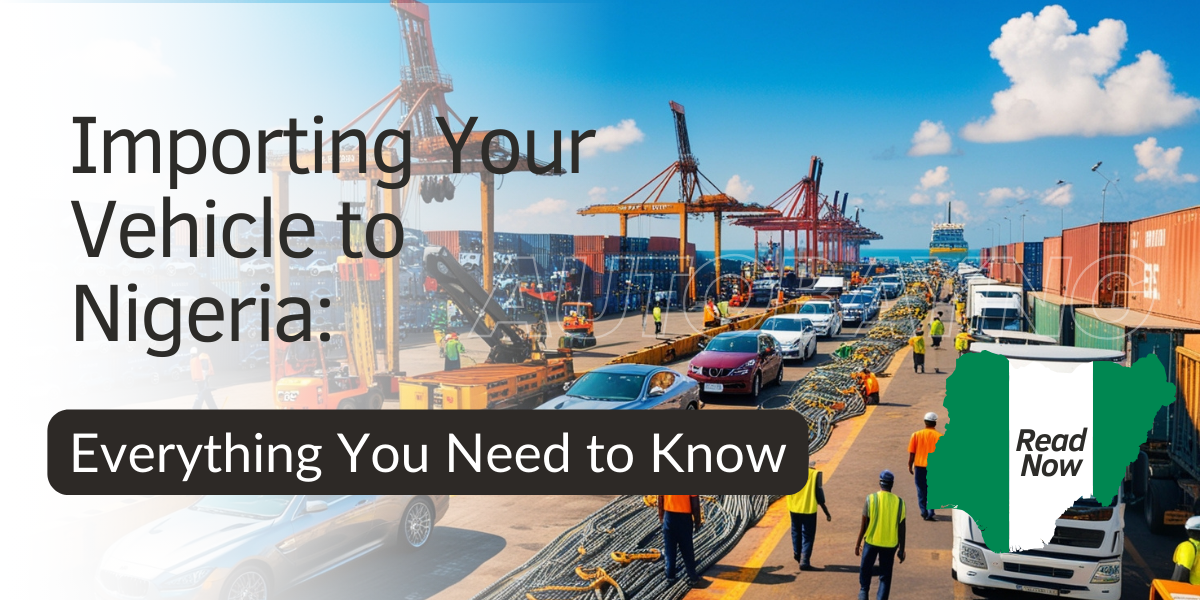
Registering your car in Nigeria is a crucial step in ensuring that your vehicle is legally recognized by the government and can be driven on public roads. This process can seem daunting, especially for first-time car owners, but with the right guidance, it can be straightforward. This article provides a step-by-step guide to help you navigate the car registration process smoothly in Nigeria.
Step 1: Gather Necessary Documents
Before you begin the registration process, it’s essential to gather all required documents. The typical documents needed include:
- Vehicle Purchase Receipt: This proves that you are the legal owner of the vehicle.
- Customs Duty Payment Receipt: If the vehicle was imported, you must present evidence of duty payment.
- Certificate of Roadworthiness: This certifies that your vehicle is in good condition to be driven.
- Insurance Certificate: A valid insurance policy is mandatory for car registration in Nigeria.
- Identification Documents: This can be a national ID card, driver’s license, or international passport.
- Passport Photographs: Usually, two or three recent passport-sized photos are required.
Step 2: Visit the Federal Road Safety Corps (FRSC) Office
Once you have gathered all the necessary documents, the next step is to visit the nearest Federal Road Safety Corps (FRSC) office. The FRSC is responsible for vehicle registration in Nigeria. You can find your local office by visiting their official website or checking local directories.
What to Expect at the FRSC Office
- Submission of Documents: Present all your documents to the registration officer.
- Verification: The officer will verify your documents for authenticity.
- Payment of Fees: You will be required to pay a registration fee, which varies depending on the type of vehicle and its age. Ensure you keep the payment receipt.
Step 3: Complete the Vehicle Inspection
After submitting your documents, your vehicle will undergo an inspection. This process checks various aspects of the car, including:
- Engine and Chassis Number Verification: The officer will confirm that the numbers on your vehicle match the documents provided.
- Roadworthiness Check: The vehicle will be assessed for safety features and general condition to ensure it meets the required standards.
It’s advisable to ensure your vehicle is in good condition before this inspection to avoid any delays.
Step 4: Obtain the Vehicle Registration Number
Once your vehicle passes the inspection, you will be issued a registration number. This number is unique to your vehicle and must be displayed on your car’s number plates.
Number Plate Acquisition
You can obtain your number plates either from the FRSC or authorized vendors. The number plate is an essential component of vehicle registration in Nigeria, and you can choose between different designs based on your preference.
Step 5: Complete Online Registration (Optional)
In recent years, the Nigerian government has introduced online registration to make the process more efficient. If you prefer to handle some aspects of the registration online, follow these steps:
- Visit the FRSC Official Website: Go to the Official FRSC portal.
- Create an Account: Sign up using your email and create a password.
- Fill in the Registration Form: Provide all necessary details about yourself and the vehicle.
- Upload Required Documents: Submit digital copies of the documents you gathered.
- Make Payment: Complete the payment through the online platform.
This option can save you time and streamline the registration process.
Step 6: Collect Your Registration Certificate
After successfully completing all required steps, you will receive your vehicle registration certificate. This document is crucial as it proves your vehicle’s legal registration and must be kept in the vehicle at all times.
Importance of the Registration Certificate
- Legal Protection: The certificate serves as evidence that your vehicle is registered, providing protection in case of disputes.
- Police Checks: During routine checks, law enforcement will ask for your registration certificate to verify your vehicle’s legitimacy.
- Insurance Claims: Having this certificate can facilitate the insurance claims process in the event of an accident or theft.
Step 7: Renew Your Registration Annually
In Nigeria, vehicle registration is not a one-time process. You must renew your registration annually to keep your vehicle legally recognized. The renewal process is generally similar to the initial registration, requiring updated documents and payment of the renewal fee.
Additional Tips for Smooth Registration
- Stay Updated: Vehicle registration regulations may change, so it’s important to stay informed about current requirements.
- Use Authorized Agents: If you find the process overwhelming, consider using authorized agents who can handle registration on your behalf for a fee.
- Keep Copies: Always keep copies of all documents submitted and received during the registration process for future reference.
Conclusion
Registering your car in Nigeria may seem complex at first, but following this comprehensive step-by-step guide can simplify the process significantly. By ensuring you have all the necessary documents, completing vehicle inspections, and understanding the renewal process, you can enjoy the peace of mind that comes with legally driving your vehicle. Whether you opt for the traditional in-person registration or the newer online methods, staying organized and informed is key to a successful registration experience. Happy driving!
FAQs
What documents are required to register a car in Nigeria?
– Vehicle Purchase Receipt
– Customs Duty Payment Receipt (if applicable)
– Certificate of Roadworthiness
– Insurance Certificate
– Identification Documents (e.g., national ID, driver’s license, international passport)
– Passport-sized photographs (usually two or three)




